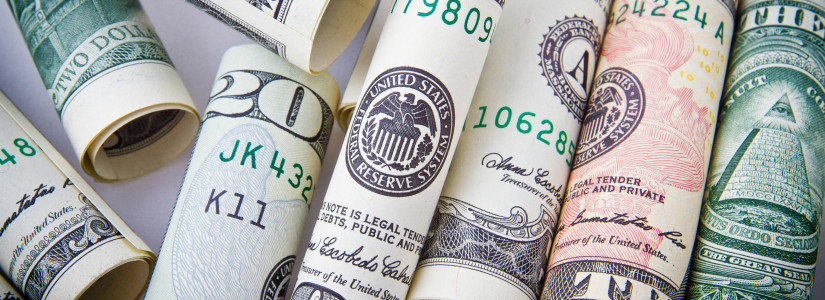Mastering Overdraft Fees: How to Get Them Refunded

Overdraft fees can be a real headache, hitting your wallet when you least expect it.
But fear not, there are ways to fight back and get those pesky fees refunded.
According to a recent report from the Consumer Financial Protection Bureau, big banks made a whopping $12.6 billion in a year just from overdraft fees.
Let’s dive into some simple strategies to help you reclaim your hard-earned cash.
Understanding Overdraft Fees
First things first, let’s understand overdraft fees.
These charges occur when you spend more money than you have available in your bank account, triggering an overdraft.
Banks then give you a hefty fee for the inconvenience.
It’s like getting penalized for a financial slip-up – not fun!
Still not feeling confident? Opt-in here to receive advice.
Monitor Your Account Regularly
One of the best ways to avoid overdraft fees is to stay on top of your account balance.
Make it a habit to check your balance regularly, especially before making big purchases or scheduling automatic payments.
Keeping a close eye on your finances can help you steer clear of those dreaded overdrafts.
Opt-In or Opt-Out
Did you know that many banks offer overdraft protection programs?
These programs give you the option to link another account or a credit card to cover overdrafts instead of getting hit with fees.
But here’s the catch – some banks automatically enroll you in these programs, while others require you to opt-in.
Make sure you understand your bank’s policy and choose the option that works best for you.
Negotiate with Your Bank
If you do find yourself facing an overdraft fee, don’t despair.
Many banks are willing to refund fees, especially if it’s your first offense or if you have a good track record of managing your account.
Give your bank a call, explain the situation politely, and ask if they’d be willing to waive the fee as a one-time courtesy.
You might be surprised by how often they say yes!
Avoiding Future Fees
Finally, take this experience as a learning opportunity to fine-tune your financial habits.
Set up alerts on your phone to notify you of low balances, create a budget to track your spending, and consider setting up overdraft protection to prevent future mishaps.
By taking proactive steps, you can minimize the risk of overdraft fees in the future.
Conclusion
Overdraft fees may seem like an unavoidable part of banking, but with the right strategies, you can minimize their impact and even get them refunded.
By staying vigilant, understanding your options, and negotiating with your bank when necessary, you can keep more money in your pocket where it belongs.
Don’t let overdraft fees hold you back – take control of your finances and reclaim your financial freedom!
Ready to achieve financial freedom by eliminating overdraft fees?
Join now to receive expert advice and start taking charge of your financial future!
Related readings just for you:
But fear not, there are ways to fight back and get those pesky fees refunded.
According to a recent report from the Consumer Financial Protection Bureau, big banks made a whopping $12.6 billion in a year just from overdraft fees.
Let’s dive into some simple strategies to help you reclaim your hard-earned cash.
Understanding Overdraft Fees
First things first, let’s understand overdraft fees.
These charges occur when you spend more money than you have available in your bank account, triggering an overdraft.
Banks then give you a hefty fee for the inconvenience.
It’s like getting penalized for a financial slip-up – not fun!
Still not feeling confident? Opt-in here to receive advice.
Monitor Your Account Regularly
One of the best ways to avoid overdraft fees is to stay on top of your account balance.
Make it a habit to check your balance regularly, especially before making big purchases or scheduling automatic payments.
Keeping a close eye on your finances can help you steer clear of those dreaded overdrafts.
Opt-In or Opt-Out
Did you know that many banks offer overdraft protection programs?
These programs give you the option to link another account or a credit card to cover overdrafts instead of getting hit with fees.
But here’s the catch – some banks automatically enroll you in these programs, while others require you to opt-in.
Make sure you understand your bank’s policy and choose the option that works best for you.
Negotiate with Your Bank
If you do find yourself facing an overdraft fee, don’t despair.
Many banks are willing to refund fees, especially if it’s your first offense or if you have a good track record of managing your account.
Give your bank a call, explain the situation politely, and ask if they’d be willing to waive the fee as a one-time courtesy.
You might be surprised by how often they say yes!
Avoiding Future Fees
Finally, take this experience as a learning opportunity to fine-tune your financial habits.
Set up alerts on your phone to notify you of low balances, create a budget to track your spending, and consider setting up overdraft protection to prevent future mishaps.
By taking proactive steps, you can minimize the risk of overdraft fees in the future.
Conclusion
Overdraft fees may seem like an unavoidable part of banking, but with the right strategies, you can minimize their impact and even get them refunded.
By staying vigilant, understanding your options, and negotiating with your bank when necessary, you can keep more money in your pocket where it belongs.
Don’t let overdraft fees hold you back – take control of your finances and reclaim your financial freedom!
Ready to achieve financial freedom by eliminating overdraft fees?
Join now to receive expert advice and start taking charge of your financial future!
Related readings just for you:
- Embracing a Life of Simplicity: Grigory Lukin's Journey to Financial Freedom
- Preparing for Retirement in 2023: A Journey Towards Financial Freedom
- Retirement Bliss Unveiled: Maximize Senior Benefits and Embrace Financial Freedom












